CMMC Practice AC.L2-3.1.15 – Privileged Remote Access: Authorize remote execution of privileged commands and remote access to security-relevant information.
Links to Publicly Available Resources
This document provides assessment guidance for conducting Cybersecurity Maturity Model Certification (CMMC) assessments for Level 2. This article discusses the elements required of a privileged access program that need to be in place to authorize execution of privileged access commands (PACs) and monitor the use of PACs whether on-line or remote. The whole document is useful, but the section on Privileged Users provides specific guidance how to control who has the right to use PACs This is a step-by-step procedure to restrict access to security-relevant information to authorized users. This method uses the System Access Control List which provides you information on users who have access to the data and the type of access they have. The policy provides a background of who is granted privileged access. On page 2, the policy indicates that “If access is required when off-campus, then the user must use the university’s VPN and university approved multi-factor authentication. Wherever and whenever possible Privileged Access users must utilize university approved multi-factor authentication.” In this edition of the On Call Compliance Solutions Compliance Tip of the Week, we focus on controlling access from remote locations and helps to ensure that unauthorized individuals are not able to execute such commands freely with the potential to do serious or catastrophic damage to the organizational system. Let’s talk about NIST 800-171 Control 3.1.15 -- Authorize remote execution of privileged commands and remote access to security-relevant information.
Discussion [NIST SP 800-171 R2]
A privileged command is a human-initiated (interactively or via a process operating on behalf of the human) command executed on a system involving the control, monitoring, or administration of the system including security functions and associated security-relevant information. Security-relevant information is any information within the system that can potentially impact the operation of security functions or the provision of security services in a manner that could result in failure to enforce the system security policy or maintain isolation of code and data. Privileged commands give individuals the ability to execute sensitive, security-critical, or security-relevant system functions. Controlling such access from remote locations helps to ensure that unauthorized individuals are not able to execute such commands freely with the potential to do serious or catastrophic damage to organizational systems. Note that the ability to affect the integrity of the system is considered security-relevant as that could enable the means to by-pass security functions although not directly impacting the function itself.
Further Discussion
Privileged users are not necessarily allowed to perform their job functions from a remote location. Likewise, not all privileged commands may be executed remotely. Allowing remote execution of privileged commands or remote access to security-relevant information should be avoided if possible. If absolutely necessary, the privileged commands authorized for remote execution should be identified and documented. Document which user roles have permissions to remotely execute privileged commands to make changes and to access security relevant information. Documentation must be used to establish security mechanisms that enforce the policy.
This practice, AC.L2-3.1.15, requires authorization for privileged commands executed during a remote session and complements five other practices dealing with remote access (AC.L2-3.1.12, AC.L2-3.1.14, AC.L2-3.1.13, IA.L2-3.5.3, and MA.L2-3.7.5):
- AC.L2-3.1.12 requires the control of remote access sessions.
- AC.L2-3.1.14 limits remote access to specific access control points.
- AC.L2-3.1.13 requires the use of cryptographic mechanisms when enabling remote sessions.
- IA.L2-3.5.3 requires multifactor authentication for network access to non-privileged accounts.
- Finally, MA.L2-3.7.5 requires the addition of multifactor authentication for remote maintenance sessions.
This practice, AC.L2-3.1.15, also extends AC.L1-3.1.2, which limits the types of transactions and functions that authorized users are permitted to execute.
